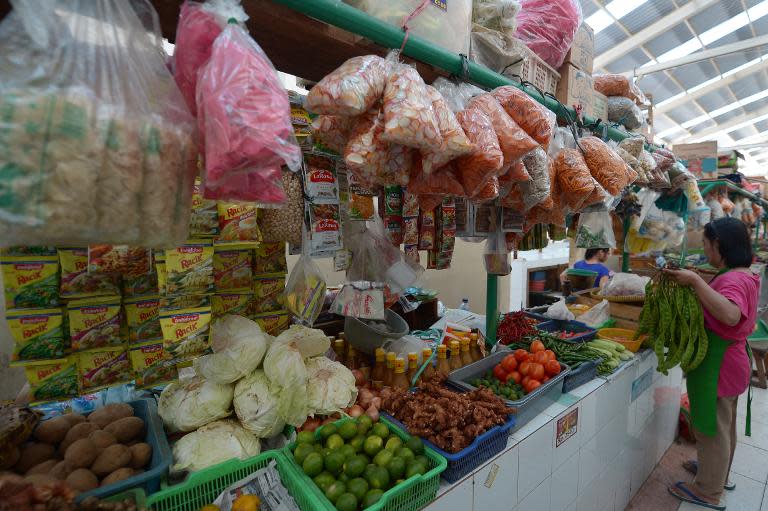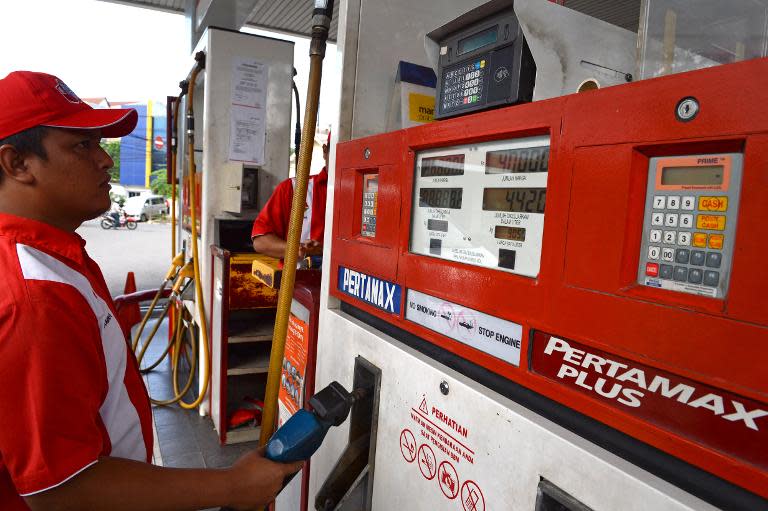Indonesian inflation slows on lower fuel, food costs
Indonesia's inflation slowed further in February, official data showed Monday, owing to the lower cost of fuel and some staple foods in Southeast Asia's top economy. Prices rose 6.29 percent year-on-year last month, slowing from a 6.96 percent rise in January, according to data from the statistics agency. The rate had accelerated in recent months after the new government reduced huge subsidies on petrol and diesel, pushing up the cost of transportation and delivering goods. But after the price of oil fell dramatically, the government decided to almost entirely scrap the decades-old fuel subsidy regime. Because of the the collapse in global oil prices, letting fuel float with the market actually reduced costs, which has fed through to lower inflation. February's slowdown was "caused by low prices of staple foods such as chillies, onions and transportation as a result of lower fuel prices", said statistics agency official Sasmito Hadi Wibowo. Lower inflation last month prompted the central Bank Indonesia to announce a shock cut in its key interest rate, reducing it 25 basis points to 7.50 percent, saying it was confident prices would remain under control. An aggressive cycle of rate rises had been blamed in part for a slowdown in economic growth, which has sunk to five-year lows. Bank Indonesia last week suggested further rate cuts could follow, prompting the rupiah to fall to a near 17-year low. Separately, HSBC said its purchasing managers' index of Indonesia's manufacturing activity hit a record low of 47.5 in February, down from 48.5 in January. A reading above 50 indicates growth, while below 50 indicates contraction.

 Yahoo Finance
Yahoo Finance 

